
Police from various units are present May 3 in Pajuiles, in northern Honduras, to escort dam construction machinery past a community resistance camp. (Photo: Witness for Peace)
It started at dawn. A vehicle full of Honduran police officers showed up at around 5 am on May 3 in front of the community protest camp in Pajuiles, where residents have been present day and night for more than a year to prevent the passage of hydroelectric dam construction machinery. Less than two hours later, the whole area was crawling with hundreds of members of various police units, including regular national police, the Police Investigations Directorate, the elite COBRAS unit and the TIGRES special forces, which are heavily supported by the US and trained by Green Berets from the 7th Special Forces Group (Airborne).
“It was like a war zone,” Pajuiles community leader Albertina López told Truthout.
Police forces lined the immediate area along the nearby highway that runs from El Progreso up to Tela, along the Caribbean coast in the Atlántida Department. Soon they were also lining the road past the camp and up to the contested construction site of the Mezapa River dam. They showed up in convoys, escorting machinery, construction materials and company personnel up to the site, where the Honduran company HIDROCEP has been trying to build a 1.3 megawatt dam.
“People were scared,” said López. Nevertheless, she and a few other women made an attempt to stop the machinery, lying down in the road in front of the protest camp to try to stop the machinery’s passage. “That’s when they started firing tear gas at us,” she said. People scattered, ushering a 75-year-old protester and children to safety, but López and others maintained their permanent presence at the roadside resistance camp throughout the police operations that lasted two full days.
State violence against community resistance to natural resource exploitation projects continues unabated in Honduras. The recent crackdown in Pajuiles to impose a fiercely contested hydroelectric dam project is just one of the latest incidents, but it provides a clear example of the involvement of US-trained and -supported special forces in repression against community activists.
Honduran Security Forces Trained by Green Berets

The Pajuiles community protest camp in northern Honduras celebrates its one year anniversary on March 22, 2018. (Photo: Movimiento Amplio por la Dignidad y Justicia)
“Honduran security forces, including those receiving funding and training from the United States, have been implicated in human rights violations in recent years,” Christine Wade, a Washington College professor of political science and international studies, told Truthout. “The targeting of environmental and land rights activists is just one facet of this.”
“Despite these abuses, funding continues to flow from the US, our military installations remain open to train Honduran security forces and impunity reigns. Unless the US acts decisively to suspend aid to security forces, these abuses will continue,” said Wade.
The Intelligence and Special Security Response Group Units (TIGRES, an acronym that spells “tigers” in Spanish) were created back in 2013, when current Honduran President Juan Orlando Hernández proposed a bill as president of Congress. The initial proposal was for more of an explicitly military-police hybrid force that would have been transferred from civilian oversight to the Secretariat of Defense in times of war, but those elements were removed from the bill before its passage. The TIGRES now fall under the police Directorate of Special Forces.
Training of the first TIGRES recruits, drawn from military and police forces, began in 2014, the year Hernández took office as president of Honduras. They were trained by Green Berets from the 7th Special Forces Group (Airborne) and Colombian members of the Comandos Jungla special police force. The same US and Colombian forces trained the following year’s recruits in a 12-week Comando basic course. Some TIGRES agents also received advanced training from Green Berets at the Eglin Air Force Base in Florida in 2015.
In their first year in action, the TIGRES were implicated in a massive theft and corruption scandal. More than 20 TIGRES agents were suspended following the theft of more than $1 million during operations against a drug trafficker in western Honduras. Late last year, as reported by The Intercept, TIGRES were involved in raids and arrests targeting people who had been protesting the contested outcome of the November 2017 elections that officially resulted in Hernández’s re-election amid widespread reports of vote-rigging and fraud.

A Green Beret from the 7th Special Forces Group (Airborne) and TIGRES forces engage in advanced marksmanship training during a 2014 tour by Honduran President Juan Orlando Hernández of TIGRES training facilities. (Photo: Spc. Steven Young / DVIDS. The appearance of US Department of Defense visual information does not imply or constitute DoD endorsement.)
On April 10 of this year, a new TIGRES base, completed with US financing, was inaugurated in El Progreso. It is the second TIGRES base, joining the installations 25 miles west of Tegucigalpa, the Honduran capital. High-ranking Honduran and US government officials attended the inauguration in El Progreso, including Honduran President Hernández; Richard Glenn, acting deputy assistant secretary of state in the Bureau of International Narcotics and Law Enforcement Affairs; and Heide Fulton, the chargé d’affaires at the US Embassy in Honduras, and currently the highest-ranking embassy official.
Less than one month later, TIGRES were involved in the crackdown in Pajuiles, only 23 miles north of the new installations. Media reports and Honduran and US officials highlight the TIGRES’ focus on combatting drug trafficking and organized crime, but on May 3, they were escorting dam company personnel and construction machinery along with other police forces that cracked down on community protest.
The Honduran Secretariat of Security did not provide a response to Truthout’s requests for comment or even confirm basic details, such as a ballpark figure of how many total police participated in the operations in Pajuiles. López, other local residents, and human rights observers estimated that approximately 250 to 300 members of the various police forces and units were present.
The US government did respond and is aware of the deployment of TIGRES to Pajuiles. “There was no U.S. involvement in this operation,” a Department of State spokesperson wrote in a response to Truthout’s request for comment.
“While we support the TIGRES professional development and specific missions related to key U.S. interests in Honduras, particularly combating drug trafficking and organized crime, we do not dictate their deployment or other operations they conduct. We aggressively review any allegation of wrong doing by the TIGRES or any other units of the security forces we support, irrespective of whether it is a mission we actively supported,” the Department of State spokesperson wrote.
Ryan Morgan, a member of the in-country human rights accompaniment team of Witness for Peace, a US nongovernmental organization, witnessed the presence and participation of TIGRES agents in operations in Pajuiles on May 3, following his arrival at the community a couple of hours after the police convoys began escorting the dam machinery.
“There were a lot of US taxpayer dollars in Pajuiles that day,” Morgan told Truthout. With regard to the TIGRES, Morgan believes their presence there should be considered problematic even by US lawmakers and embassy officials who believe their mandate is important for US national security in terms of fighting drug trafficking and organized crime.
“It would be very hard to explain or justify the involvement of the TIGRES in Pajuiles,” said Morgan. “This use of the TIGRES should outrage even people who on paper support their existence and US support for them,” he said.
TIGRES agents were the first police forces Morgan and his colleague saw when they were arriving at Pajuiles. They were stationed along the highway approximately a quarter of a mile south of the road leading to the protest camp, where a police roadblock was set up nearby. Morgan and his colleague stayed at the camp all day, until 5 pm or so. Convoys and machinery came and went up to the construction site, but by the camp itself it was mostly COBRAS who were guarding the area, armed with riot gear, tear gas and maybe only a pistol or two among the dozen or so agents who swapped out every two hours. Escorts for dam machinery were also largely provided by COBRAS, said Morgan, but that changed later in the afternoon.
At approximately 3 pm, a convoy came down from the dam construction site, reportedly escorting HIDROCEP executive Jason Hawit. Morgan didn’t see whether Hawit was in fact there or not, but he did note the difference in police forces accompanying the vehicles.

Pajuiles residents and the Broad Movement for Dignity and Justice celebrate the December 2017 acquittal of Albertina López (in the blue dress) and three other protest camp participants. Other Pajuiles residents still face trial. (Photo: Movimiento Amplio por la Dignidad y Justicia)
“I was really surprised to see two or three trucks full of TIGRES, all with automatic weapons, obviously, that had apparently been up at the construction site, providing security there all day,” Morgan told Truthout. Shortly thereafter, TIGRES also showed up in the area of the protest camp. “At 3:30 or so, rather than a new unit of COBRAS coming to relieve the one that was there, it was a mixed unit of COBRAS and TIGRES,” he said. As with those providing escort, the TIGRES carried automatic weapons, not riot gear. The TIGRES presence continued until the following night, on May 4.
Earlier in the morning of May 3, before Morgan arrived, police arrested a local Pajuiles resident while he was filming the security forces’ operations. Albertina López’s brother Nolberto López was taken into custody, accused by police of causing a public scandal. According to locals, however, he was arrested simply for recording police. He was released without charges later that afternoon. He is far from the first to suffer criminalization related to the protest camp, however. His sister was acquitted, but 11 Pajuiles residents are still facing trial.
Organized in local community groups by sector, Pajuiles residents are members of the Broad Movement for Dignity and Justice (MADJ), which grew out of a prosecutor’s hunger strike against corruption and now also focuses on natural resources and human rights issues. MADJ leaders and community members alike have been subject to a barrage of threats, intimidation and attacks, particularly in connection with the dam protest camps in Pajuiles and in Arizona, also located in the Atlántida Department.
“Pajuiles has been subject to intense repression,” MADJ coordinator of organization Saúl Ávila told Truthout. Many residents still face trial for criminal charges linked to the camp, and there have been past instances of police repression and militarization in Pajuiles.
One local resident, Geovanny Díaz, who had participated in the dam resistance camp was among the more than 35 people killed during the nationwide violent crackdown on protests against election fraud. Díaz was dragged out of his home in Pajuiles by men dressed in police uniforms, shot and killed shortly after a protest ended in the wee hours of March 23.
“There’s collusion between the dam company and state forces, but local divisions also aggravate the situation,” said Ávila. “The [company] completely divided the upper communities and turned them against the lower communities, which are the communities that will suffer from water shortages if the hydroelectric dam is built,” he said.
The Uphill Battle Up North to Cut Deadly Security Aid

TIGRES and other police unit members maintain a presence May 3 near the Pajuiles protest camp along the road leading to a contested dam construction site. (Photo: Witness for Peace)
Alex Main visited Pajuiles this past March for the one-year anniversary of the protest camp. A senior associate at the Center for Economic and Policy Research based in Washington, DC, Main has reported on Honduran movements and US aid to security forces for years.
US congressional efforts to cut or condition security assistance to Honduras began in earnest back in 2010, according to Main. At the time, there was increased attention to the country in the wake of the June 2009 coup d’état that removed the elected president from office and led to a marked spike in homicides, state violence and murders of activists. Community-based land, environmental and Indigenous activists have been particularly targeted.
“Given that the situation has only grown worse since then, and that horrifyingly frequent reports of police and military involvement in activist killings have been met with near impunity, members of Congress have continued to demand full suspension of security assistance to Honduras in increasing numbers,” Main wrote in an email to Truthout.
One initiative to that effect is the Berta Cáceres Human Rights Act, a bill named in honor of the well-known Honduran Indigenous rights and social movement activist murdered in 2016. “[It] would instruct the US administration to suspend all security assistance to Honduras and to veto any loans from multilateral development banks to Honduran police and military forces. It has so far garnered 70 House co-sponsors,” Main noted.

Green Berets from the 7th Special Forces Group (Airborne) assist TIGRES forces during a 2015 shooting drill at the Eglin Air Force Base in Florida. (Photo: Capt. Thomas Cieslak / DVIDS. The appearance of U.S. Department of Defense visual information does not imply or constitute DoD endorsement.)
At the moment, legislative action with regard to aid to Honduran security forces is limited to elements incorporated into appropriations legislation that condition half of US aid to Honduras on Department of State certification of compliance with a series of loosely worded human rights measures.
“These or similar requirements have been incorporated into appropriations legislation for a number of years now, and have had no observable positive effect to date,” wrote Main. “The last time they certified the government’s compliance was actually just two days after last year’s incredibly problematic elections, providing the government with a needed boost just as they began deploying security agents, including TIGRES, military police and conventional military troops, to violently repress protests.”
Back in Pajuiles, many residents are still shaken from the recent massive deployment of security forces there. Police took photographs of protest camp participants and community leaders during the operations, and they have been informed by other residents that death threats against them continue to circulate, said Albertina López. They’re planning to formally report the latest threats to Honduran authorities, but don’t have much faith it will result in any action.
“State institutions don’t function. They don’t function at all — not for us,” said López. However, López and other activists at the protest camp are not giving up and have vowed to resist the dam. “We continue the struggle,” she said.








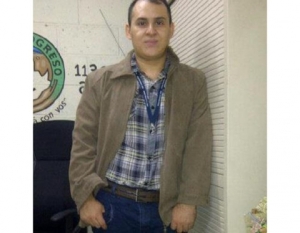
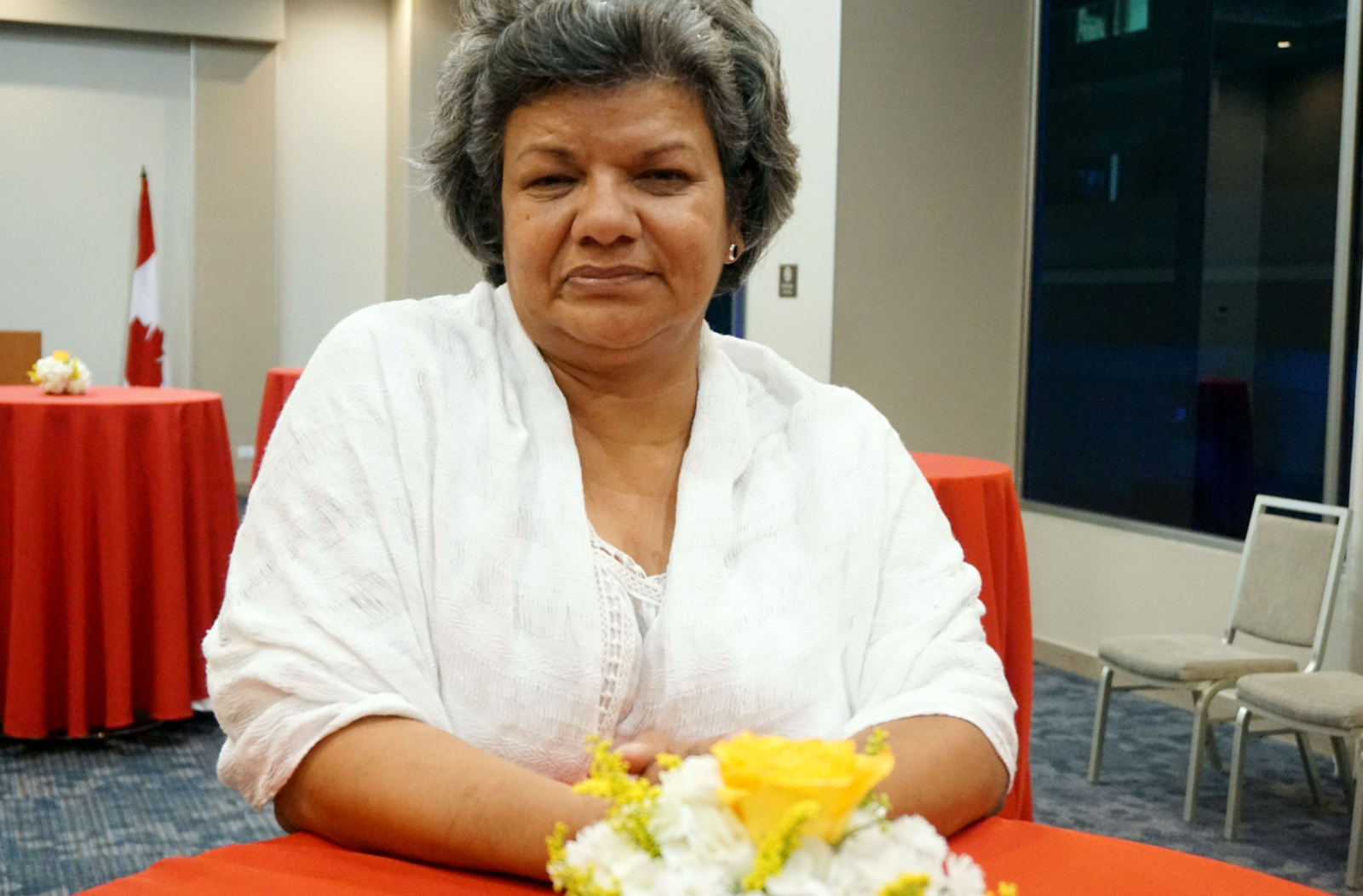
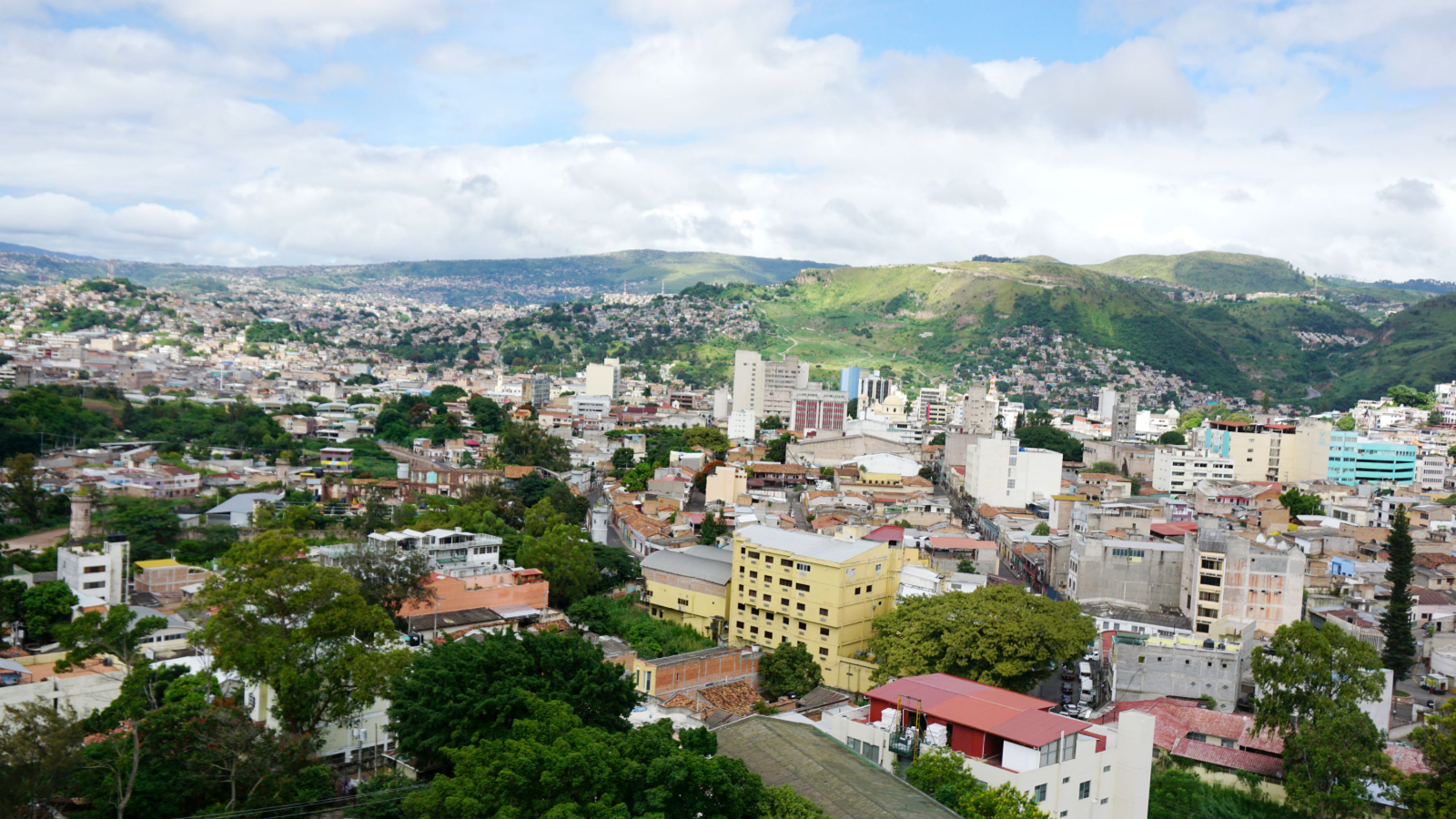
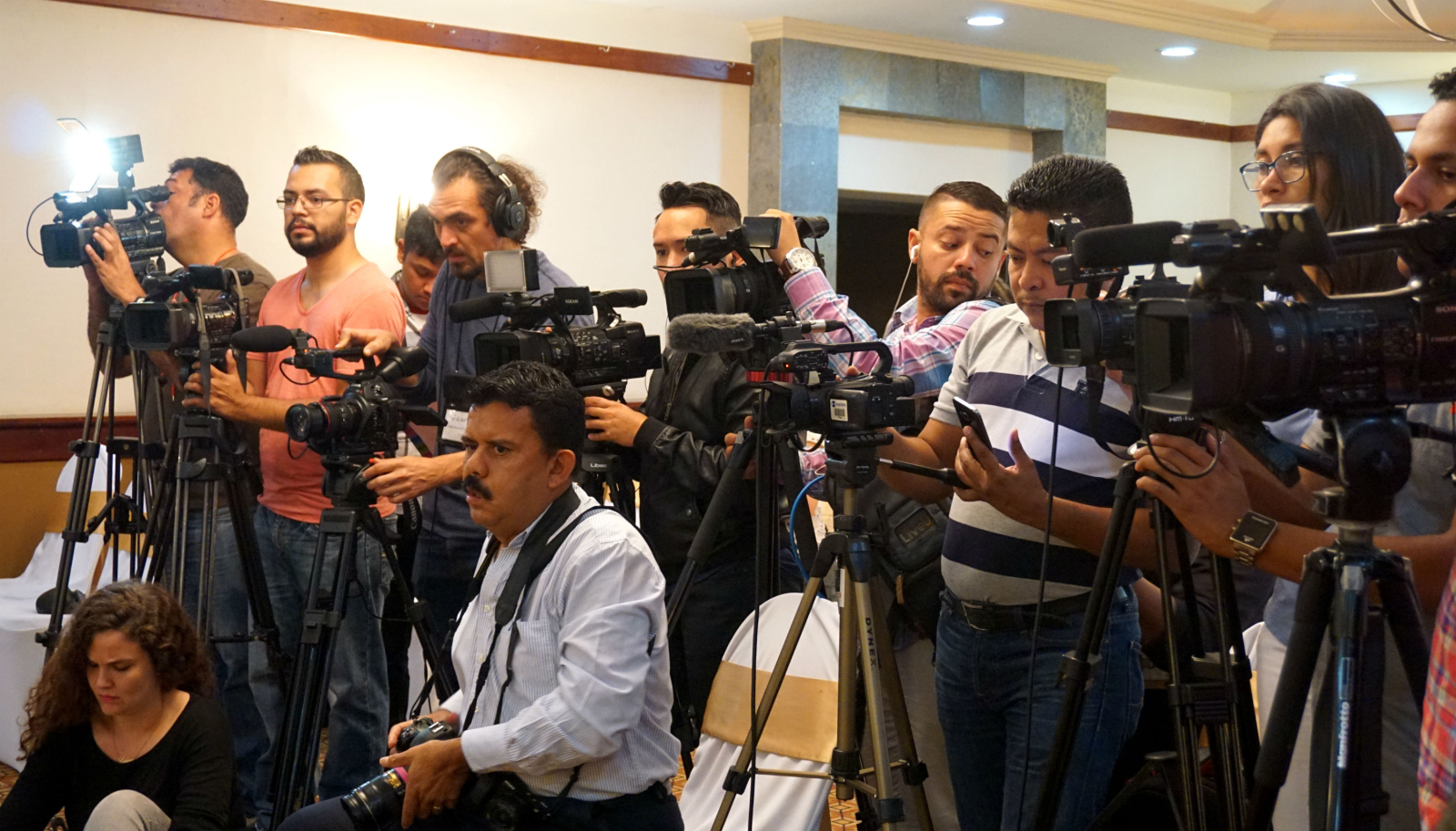
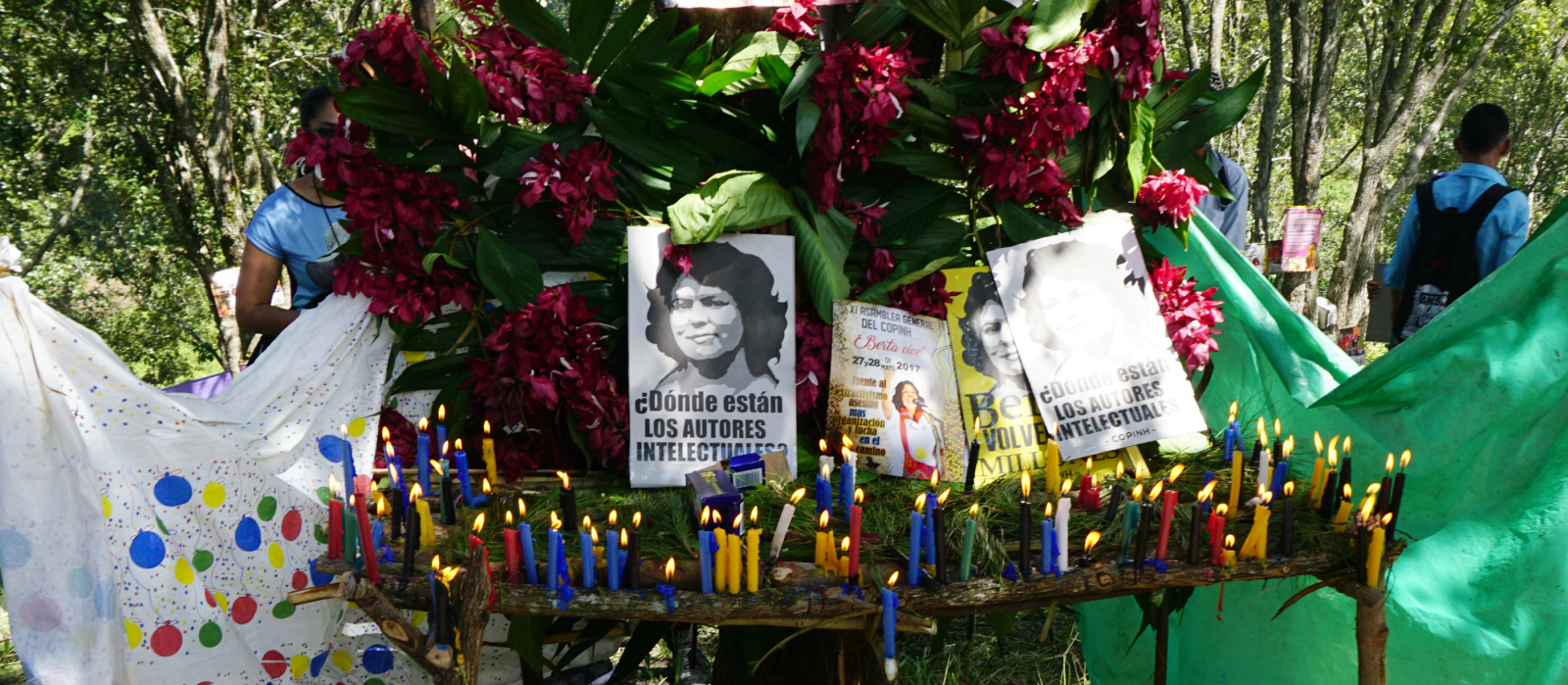

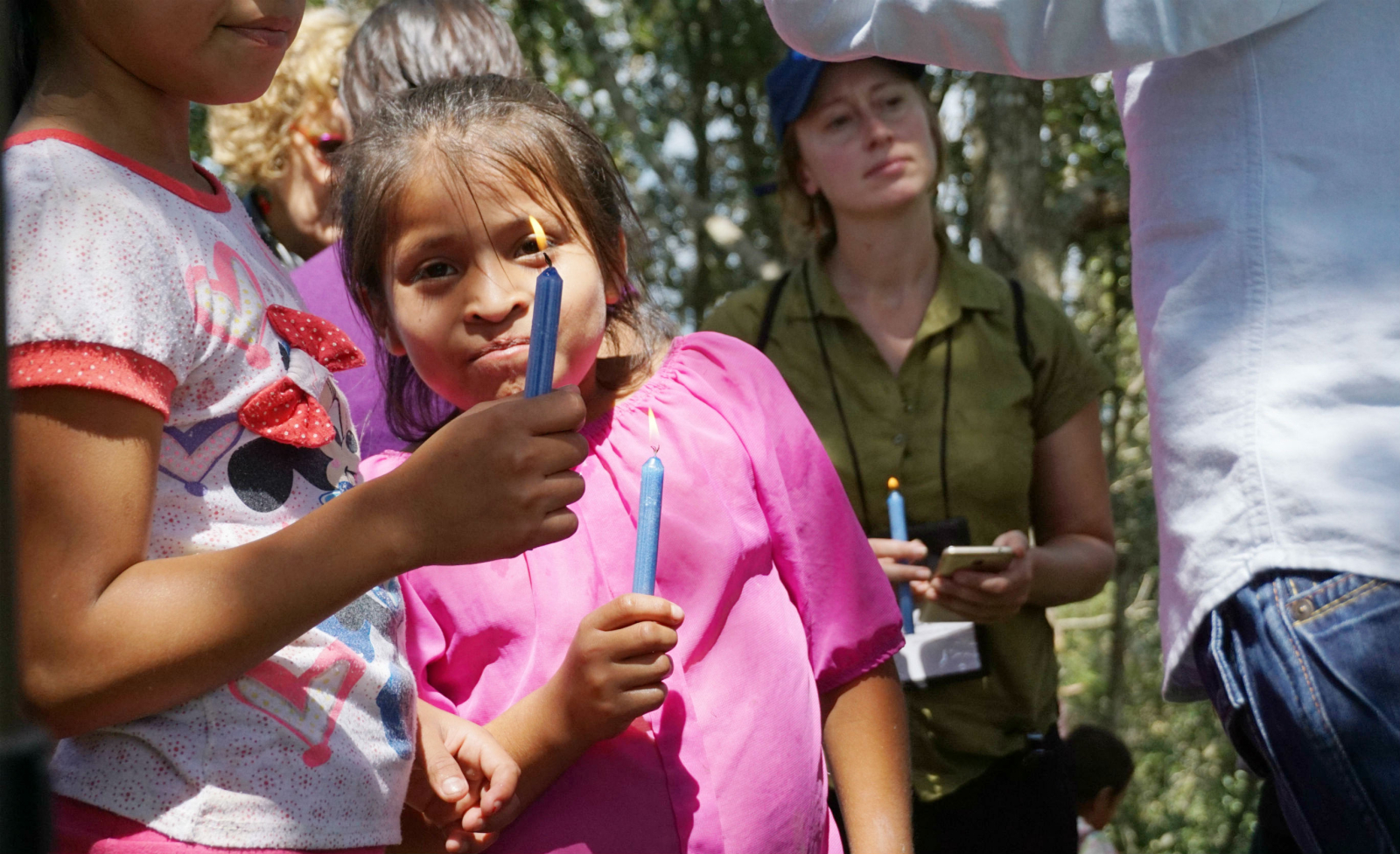

![Honduran journalists face increasing threats and intimidation Journalists in Honduras say they are under increasing threat from state authorities [Fernando Antonio/AP]](https://ci4.googleusercontent.com/proxy/In3HVJISuc_x73z5kP2AnnHzO7zYgg3JsD-lz28nhKqsPJR36xtzVL-Y4RYTBtFs8WiQCLstypkeDMFiuhK2HqlNTLkUfCYWlVqyPhkbyqTaVMhJ9HOYmPSaRDAPkBddUhR4OwNkNIuqLoHBptOB_oGyGEcvjlK6ncItlDB9wpuX1HUWugFyKpWwTh4r=s0-d-e1-ft#https://www.aljazeera.com/mritems/imagecache/mbdxxlarge/mritems/Images/2018/5/3/3896b6c5f13d4a1d9c4c1be3db504477_18.jpg)